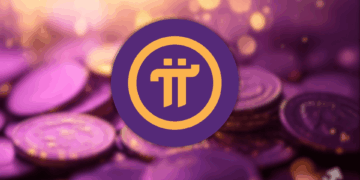The Thailand Security and Exchange Commission (SEC) has banned crypto companies from offering staking and lending services, or depository services, “to protect traders and the public from service providers’ business risks.” This could have been motivated by the collapse of crypto lending platforms experienced in the summer of 2022.
According to a press release on their website on September 15, the Thailand SEC stated that it welcomes opinions and has opened a public hearing on the issue until October 17.
The release noted that the decision to ban the ‘depository services’ by the Thailand financial regulator was made to protect the Thailand investment public from the risks associated with crypto lenders. The SEC also noted that foreign crypto lenders were facing liquidity difficulties. The crypto lending platforms are no longer observing withdrawal appeals from the depositors and have gone into liquidation, leaving the creditors non-existent.
“The Office of the Securities and Exchange Commission (SEC) welcomes its opinions on the principle prohibiting digital asset operators from providing or supporting digital asset depository services that pay returns to depositors. and deposit taking & lending to protect traders and the public from service providers’ business risks.”
There were several regulations proposed by the Thailand SEC in the release. They include a ban on crypto lenders taking digital assets deposits and taking the deposited digital assets for loans or investments. It also prohibits the payment of returns to depositors even if the returns are not from the growing value of assets but the promotion budget. Lastly, it wants to outlaw any promotional or advertising of crypto lending and staking services.
Thailand decided to take such radical decisions in response to the market meltdown, which saw companies such as Celsius Network, Voyager Digital, and many more freeze withdrawals and files for bankruptcy earlier this year.
Thailand SEC on Zipmex
The regulator recently filed a police report against the crypto exchange Zipmex. The crypto exchange, which has its entities spread all over Asia, froze its withdrawals in July. However, according to the police report, the Thai SEC said the Zipmex firm failed to submit information about its transactions despite being given the deadline to do so.
SEC accused the crypto trading platform and its co-founder Akalarp Yimwilai of non-compliance with the law and the non-provision of information on digital wallets and crypto transactions according to the country’s Digital Asset Act. The regulatory agency has also asked the Zipmex firm to provide evidence of why it froze its withdrawals in July.
However, Zipmex exchange is firm in cooperating with the regulators, and it will stop at nothing to ensure compliance with the existing measures and standards.
Earlier this month, Thailand joined Singapore and India in cracking down on cryptocurrency advertisements. The Thai authorities require crypto companies to minimize the direct promotion of cryptocurrencies on their websites. They will be forced to give the credentials of adverts and spending, including their social media influencers, the bloggers, and their terms, to the Security and Exchange Commission (SEC).
Celsius has become insolvent among crypto lenders, an example of a troubled crypto company. The United States alleged that the Celsius firm had been operating as a Ponzi scheme for many years. It has led to many investors writing off their deposits with the beleaguered crypto lending firm. Other crypto lending firms are in a financial crisis, wondering whether they will recover, including Hodlnaut. Like Celsius, Hodlnaut received deposits from retail and institutional traders. It froze withdrawals due to the downturn in crypto markets, which has seen Bitcoin and Ether lose over 50% of their value since the turn of the year.















